Each year, Global Ties U.S. recognizes alumni of the U.S. Department of State International Visitor Leadership Program (IVLP) for high achievements in driving social change through innovation in their communities. Thanks to the contributions of Vicente López-Ibor Mayor, an IVLP alumnus, Global Ties U.S. Advisory Council Member, and Honorary President of Via-Circulo Jefferson in Spain, the award is generously granted annually at the Global Ties U.S. National Meeting.
Nominees must illustrate that they are making a significant difference in their local or national community by addressing one of four areas attributable to their IVLP participation: fostering economic prosperity and entrepreneurship, advancing civil society and human rights, working to promote alternatives to violent extremism, or combating climate change.
The 2022 slate of nominees included IVLP alumni working in a variety of fields, ranging from disability rights to social justice to education advocacy. This year’s recipients of the 2022 Global Ties U.S. IVLP Alumni Award for Social Innovation and Change were Mehwish Abbasi of Pakistan and Adrian Lasimbang of Malaysia: two leaders who are empowering marginalized communities to create equitable and inclusive strategies to address climate change.
Continue reading to learn about the other nine finalists and the extraordinary ways they are making a difference in their communities.
Anoka Primrose Abeyrathne—2017 IVLP Alumna, Sri Lanka

Anoka Primrose Abeyrathne started Growin’ Money at age 13 after surviving a tsunami in 2004 in order to provide underprivileged families the opportunity to gain an income through handicrafts, organic farming, and eco-tourism, along with offering access to education and digital skills training. Over the course of ten years, the initiative has trained more than 50,000 women and youths, and innovated on the concept of social entrepreneurship to emphasize that climate change is not a solitary issue, but is intertwined with poverty, gender equality, and inclusion.
Anoka credits her 2917 IVLP, “Our Planet: Addressing Regional Effects of Extreme Weather Events,” for influencing her work. She learned the importance of sustainability of initiatives through her interactions with the EPA and the communities in Kansas City, the value of disaster risk reduction education from communities in Baltimore, and how to teach about climate change repercussions through engagement in San Diego.
Through Growin’ Money, and serving as both the Royal Commonwealth Society’s Environment Working Group Lead and the Asia-Pacific representative to the UN-Habitat YAB, Anoka has worked to address social justice and equity in relation to climate change. She believes in bringing together genuine doers to collaborate on solutions that are both practical and supportive of communities in need.
Elaine Alam—2012 and 2017 IVLP Alumna, Pakistan
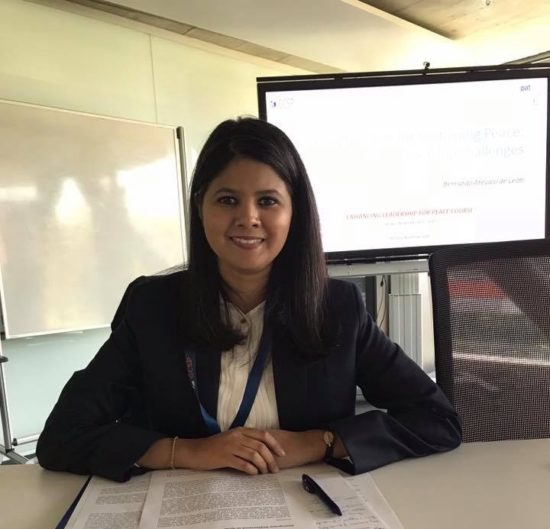 Elaine Alam is a development and human rights expert in Pakistan who has been working in the sector since 2007. A two-time IVLP alumna of the 2012 “Young Leaders: U.S. Political Process” project and the 2017 project “NGO Management,” she has extensive experience in poverty reduction programs and community development, in both policy and practice, and specializes in development management.
Elaine Alam is a development and human rights expert in Pakistan who has been working in the sector since 2007. A two-time IVLP alumna of the 2012 “Young Leaders: U.S. Political Process” project and the 2017 project “NGO Management,” she has extensive experience in poverty reduction programs and community development, in both policy and practice, and specializes in development management.
Elaine is a key actor in technical support to the human rights policy and implementation authorities in the Punjab province. She has carried out several key interventions on religious and belief freedom in Pakistan and developed partnerships on both a national and international scale that support and advocate for the rights of transgenders, women, and religious minorities, and climate justice. In the last three years, she has also served as the country lead and author for the Pakistan Chapter of the South Asia Collective, a network with the Minority Rights Group, UK, for which she writes the annual State of Minorities report and the quarterly bulletin aimed at advancing and lobbying for policy advocacy for minority rights.
She conceived and led a significant collaboration with the United Nations Democracy and Endowment Fund (UNDEF) New York office on the safeguarding and protection of transgender rights in aligning citizenship rights and human rights. Elaine also works on policy advocacy and development interventions for refugees and host communities with the Austrian Development Agency. Her programs for domestic housekeepers and home-based workers, as well as her work with persecuted women, particularly those who have been forced to convert, demonstrate her dedication to working for women.
Arman Ali—2014 and 2020 IVLP Alumni, India
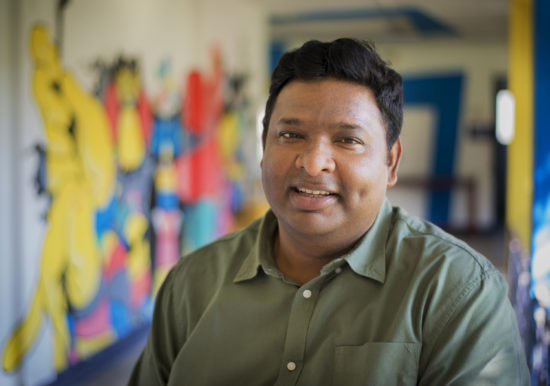 Arman Ali, a disability rights activist from Guwahati, Assam, is presently based in New Delhi as the Executive Director of the National Centre for Promotion of Employment for Disabled People (NCPEDP), a cross-disability not-for-profit organization working to advocate for the rights of persons with disabilities. Under his leadership NCPEDP has been advocating for the inclusion of persons with disabilities in the census of the country, as well as in all other important developmental aspects like education, employment, policy making, and accessibility.
Arman Ali, a disability rights activist from Guwahati, Assam, is presently based in New Delhi as the Executive Director of the National Centre for Promotion of Employment for Disabled People (NCPEDP), a cross-disability not-for-profit organization working to advocate for the rights of persons with disabilities. Under his leadership NCPEDP has been advocating for the inclusion of persons with disabilities in the census of the country, as well as in all other important developmental aspects like education, employment, policy making, and accessibility.
Arman has played a pivotal role in bringing the disability sector together in the North East to form a network of organizations from the seven states, leading campaigns and engaging the judiciary to uphold the rights of persons with disabilities. Presently, he is working as a catalyst, advocating for the rights of persons with disabilities at the national and international levels with agencies like UNESCO, as well as with the media, policy makers, and other stakeholders.
Arman believes that informed advocacy with duty bearers can lead to social change, and has used his strong connections with ministers, politicians, duty bearers, and policymakers to foster change in order to improve the lives of people with disabilities. Arman is a two-time IVLP alumnus, having completed a project in 2014 titled, “Disability Rights and Issues,” and was selected as Gold Star IVLP Alumnus in 2020 by U.S. Department of State to celebrate 30 years of the Americans with Disabilities Act.
Diana Kobas Deskovic—2018 IVLP Alumna, Croatia
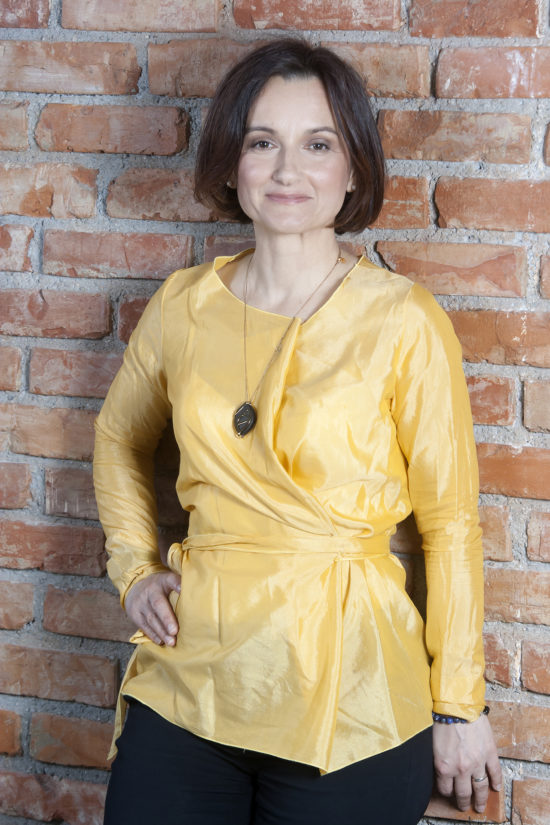 Diana is a consultant on organizational development, communications, and women leadership at the boutique company Spona Code, and serves as the president of the Working Mother Institute, convening companies and individuals dedicated to gender parity. Diana is also the creator of the MAMFORCE Method©, a method for assessing work-life integration and gender equality in the workplace, with the goal of assisting companies and other entities in becoming more inclusive and diverse organizations with higher employee engagement, healthier workplaces, and superior productivity.
Diana is a consultant on organizational development, communications, and women leadership at the boutique company Spona Code, and serves as the president of the Working Mother Institute, convening companies and individuals dedicated to gender parity. Diana is also the creator of the MAMFORCE Method©, a method for assessing work-life integration and gender equality in the workplace, with the goal of assisting companies and other entities in becoming more inclusive and diverse organizations with higher employee engagement, healthier workplaces, and superior productivity.
MAMFORCE© is a diversity, equity, and inclusion audit that gathers data from various sources within the organization and evaluates six key areas: engagement and communication, responsible governance, flexibility, benefits, leadership, and talent management. The impact is visible in audited organizations through increased female promotions, reduced employee turnover, higher retention rates, and overall improved employee engagement and productivity. There are currently 50 MAMFORCE© certified organizations, resulting in more equitable working conditions for some 40,000 employees.
Diana is an advocate for women’s empowerment and is known as a regional opinion leader and author on women in business, something she learned more about during her 2018 IVLP project titled “Women in Entrepreneurship.” She directs the female leadership program DaringlyHER – Unleash Your Leadership Potential and works with a number of international organizations and institutions, including the International Labor Organization, the United Nations Global Compact, and UN Women.
Aida Kasymalieva—2010 IVLP Alumna, Kyrgyzstan
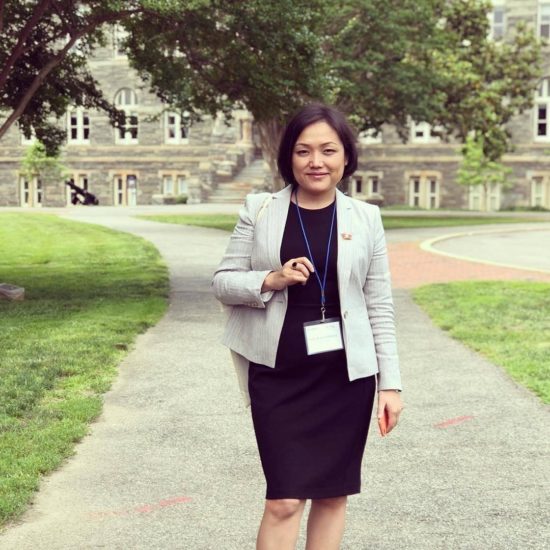
Aida Kasymalieva is a Representative of the Kyrgyz Republic to the United Nations. Previously, she served as a member of the Jogorku Kenesh, or Parliament, of the Kyrgyz Republic, where she held senior positions including Vice Speaker (2018 to 2021) and Acting Speaker (2021). She also chaired and was a member of the Council on Women’s Rights and Prevention of Gender-Based Violence under the Parliament of the Kyrgyz Republic. The youngest female member of parliament of the Kyrgyz Republic, Aida was responsible for legislation advancing women’s rights in her nation, combating gender-based violence and practices like bride kidnapping, forced marriages, and child marriages.
A 2010 alumna of the “Edward R. Murrow Program for Journalists” IVLP, Aida’s earlier assignments included work in broadcast journalism. She was a producer at Al Jazeera in Kyrgyzstan, general producer at the New Television Network, correspondent for the Russian and Kyrgyz language service of Radio Free Europe/Radio Liberty, and an editor at the Institute for War and Peace Reporting (IWPR)’s Kyrgyzstan and Kazakhstan regional coverage. She is also the author of a series of articles on human rights, including rights of migrants, women, and children.
Amjid Khazir—2014 IVLP Alumni, UK
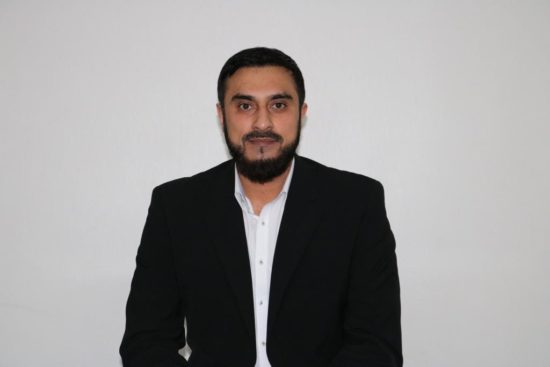
Amjid Khazir is the Director of Media Cultured, an award-winning UK-based social enterprise and education provider, and is a 2014 alumni of the IVLP “NGO Management in the U.S.” His aim is to empower future generations to reject hate openly and clearly with informed opinions and creative content.
By promoting cultural understanding through media, sport, and art, Amjid his tackled some of the most challenging hate-filled narratives of the modern day and has improved equality, inclusion, and safeguarding practices. His work with schools, football clubs, businesses, and mosques has encouraged young people to become filmmakers and positive role models. Says Amjid, “Education will always be the cornerstone to this work [to counter racism and extremism], but the use of sport, film, gaming, and art programs are yet, untapped, underutilized, and ineffective. We can all do better, and we will.”
Miroslav Klempar—2017 IVLP Alumni, Czech Republic
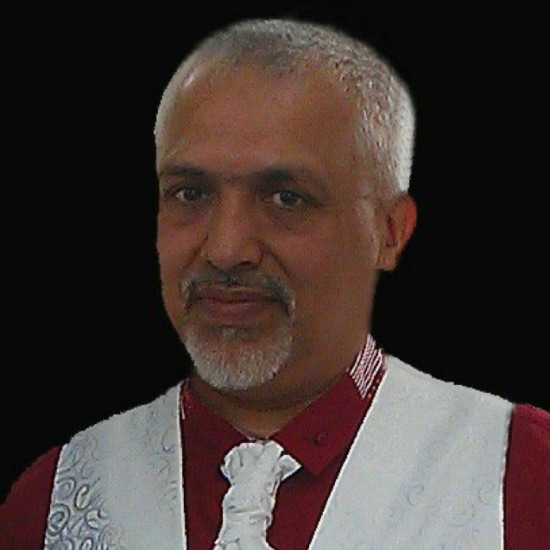 Miroslav Klempar is a community organizer working to improve access to quality education for Romani children and end segregation in education in schools in Ostrava, Czech Republic. He previously worked as an educational adviser for Roma students in the United Kingdom from 2004 to 2014, before becoming a consultant in research and advocacy projects concerning Romani children’s segregation in education in schools in Ostrava. Miroslav is a member of The Coordination Committee of Parents for Inclusion, an invited member of the Czech School Inspection, an educational adviser for the Council of Europe in the project INSCOOL, an alumnus of the 2017 IVLP project titled, “Inclusive Education for Roma People,” and is the founder of Awen Amenca z.s.
Miroslav Klempar is a community organizer working to improve access to quality education for Romani children and end segregation in education in schools in Ostrava, Czech Republic. He previously worked as an educational adviser for Roma students in the United Kingdom from 2004 to 2014, before becoming a consultant in research and advocacy projects concerning Romani children’s segregation in education in schools in Ostrava. Miroslav is a member of The Coordination Committee of Parents for Inclusion, an invited member of the Czech School Inspection, an educational adviser for the Council of Europe in the project INSCOOL, an alumnus of the 2017 IVLP project titled, “Inclusive Education for Roma People,” and is the founder of Awen Amenca z.s.
Awen Amenca is a campaign that organizes the Roma community in regards to equal access of Romani children to quality education. The campaign’s work in grassroots organizing reduced segregation in children’s education in Ostrava and gave Roma parents hope that change is possible.
Sally Riedel—2019 IVLP Alumna, Germany
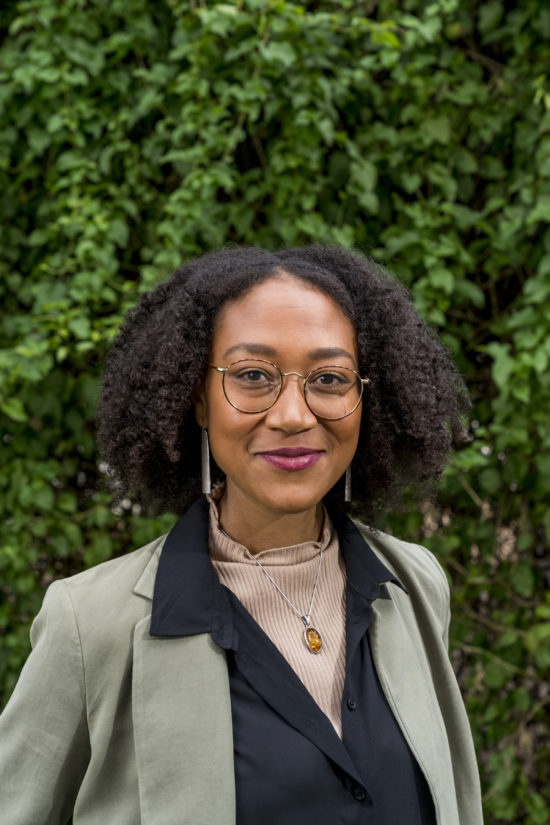 Sally Riedel is making a difference by empowering marginalized voices in the city of Hamburg. She is the founder and CEO of MOSAIQ e.V., a nonprofit organization that acts as both an urban think tank and a platform for youth between the ages of 16 and 24.
Sally Riedel is making a difference by empowering marginalized voices in the city of Hamburg. She is the founder and CEO of MOSAIQ e.V., a nonprofit organization that acts as both an urban think tank and a platform for youth between the ages of 16 and 24.
The goal of the organization is to strengthen democracy and counter anti-Muslim and anti-Black racism and all forms of discrimination by offering workshops; peer mentoring programs, such as the Critical Mind Program; diversity, equity, inclusion, and accessibility (DEIA) trainings; and other activities. MOSAIQ offers arts and activism on digital platforms to promote DEIA Hamburg-wide and accommodate and nurture the diverse interests and competencies of its community. Sally’s engagement for supporting DEIA is not limited to MOSAIQ. Her roles include advisory functions for Hamburg’s working group on the city’s colonial heritage and the Initiative of Black People in Germany, among many others.
Sally credits her 2019 IVLP exchange, “Advancing Minority Rights,” for contributing to her work on multiple levels. It has sharpened the trajectory of her newly-founded organization by adding vital components to organization-building: developing and implementing community outreach and advocacy strategies and identifying ways to address and empower young people, especially from non-academic backgrounds.
Muththamizh Kalai Vizhi—2019 IVLP Alumna, India
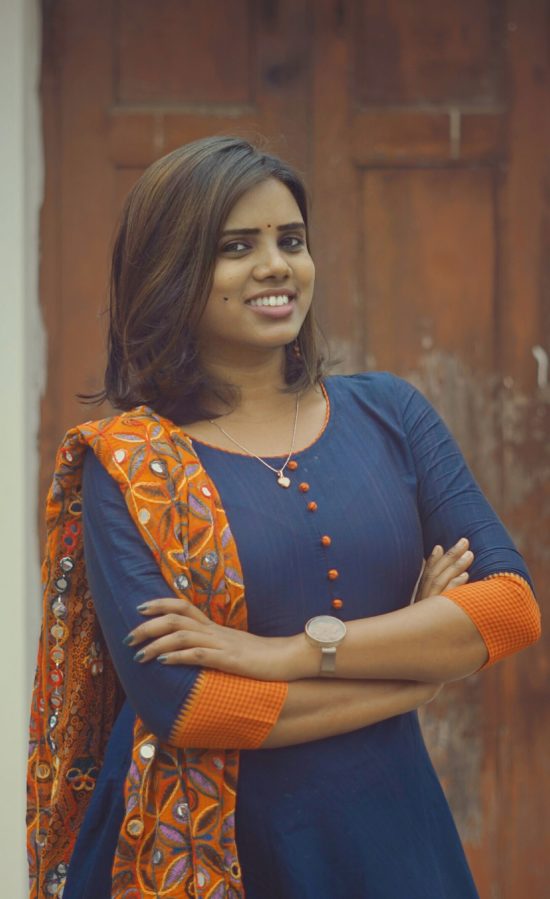 Muththamizh Kalai Vizhi is a professional social engineer who worked in Western Australia with the Aboriginal Communities involving inclusive development for two years.
Muththamizh Kalai Vizhi is a professional social engineer who worked in Western Australia with the Aboriginal Communities involving inclusive development for two years.
Muththamizh believes that education is a great equalizer in society, and has participated in, and given lectures at, both national and international conferences pertaining to women’s, Indigenous, and Dalit community rights. Through her work with “Neelam” (Blue), a Non-Governmental Organization, Muththamizh has worked to support human welfare and human rights issues through public education, community service, and advocacy. Its primary areas of work include education, public awareness, advocacy, health, and economic development. Neelam runs 25 academies to engage children who are first-generation learners in various forms such as folk arts, drawing, and theater to help them experiment, grow, and build a strong sense of self. So far, these academies have reached more than 15,000 students, many of whom have themselves become mentors.
As part of her 2019 IVLP, “Access to Justice in Rural Communities,” she visited organizations and judicial systems, which helped her understand more about hate crimes and injustice, as well as how to address such issues. This valuable experience gained through her IVLP program inspired her to work on improving the experience of law and justice for people living in rural and remote communities by developing an inclusive justice approach. Her organization currently works with Arunthathiyar communities (manual scavengers), bonded labors, Dalit women, and traditional folk artists in 15 districts. Their primary goal is to improve access to justice for the poor and marginalized by developing strategies to address barriers to justice in the legal, social, economic, and political domains.
